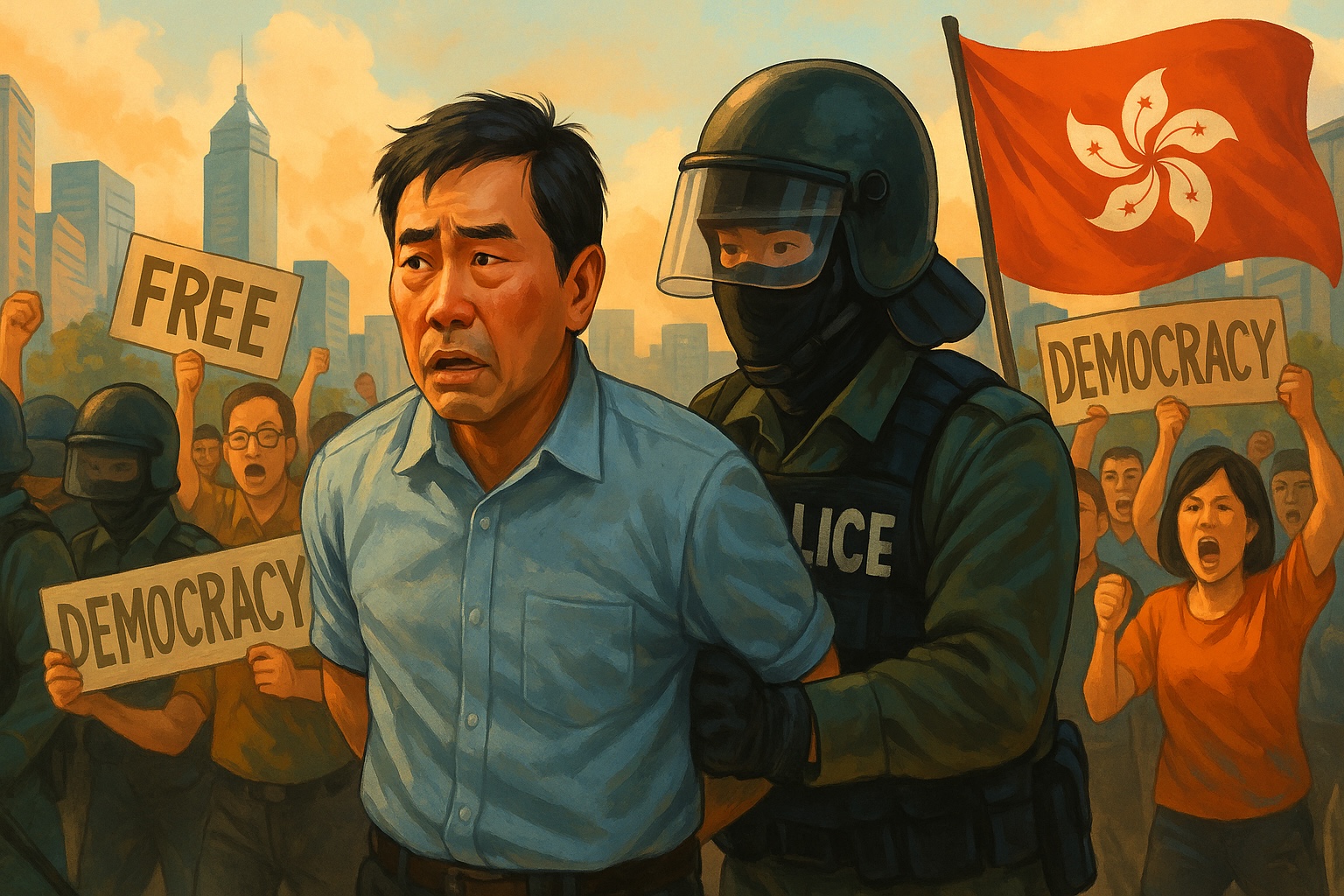Hong Kong under the NSL: Fear, Silence, and the Erosion of Rights

The draconian National Security Law that came into effect on June 30, 2020, will soon complete five years in Hong Kong. Enacted by the Standing Committee of the National People's Congress of China, the law has completely changed the landscape of Hong Kong’s political system and cracked down on dissent.
Experts have accused China of not keeping its word with regard to preserving Hong Kong’s unique identity. China had pledged to preserve Hong Kong’s unique political, economic, and social culture when the former British colony was handed over in 1997. Beijing had promised that it would give Hong Kong fifty years to keep its capitalist system and enjoy many freedoms not found in mainland Chinese cities. The transition period has not even been completed, and Beijing has taken increasingly brazen steps to encroach on Hong Kong’s political system and crackdown on dissent.
In 2020, Beijing imposed a sweeping National Security Law on Hong Kong. Since then, authorities have arrested dozens of pro-democracy activists, lawmakers, and journalists; curbed voting rights; and limited freedoms of the press and speech. In March 2024, Hong Kong lawmakers passed Article 23, an additional piece of security legislation that further cements China’s rule over the city’s rights and freedom. These moves have not only drawn international condemnation, but have also raised questions about Hong Kong’s status as a global financial hub and dimmed hopes that the city will ever become a full-fledged democracy.
The law triggered a large political backlash among Western governments and media ever since China imposed the law on Hong Kong. Once home to a vibrant media scene and robust civic discourse, Hong Kong now shows clear signs of strain with the closure of independent news outlets and growing self-censorship among journalists and commentators. Many editors, journalists, and pro-democracy activists have been facing further challenges, as a former editor is imprisoned for sedition. Meanwhile, media companies look towards the Chinese mainland to increase audiences and revenue.
The fear is writ large on common Hongkongers due to the ushering in of a new culture of informing. According to a BBC’s recent report, Hong Kong's pro-China "patriots" are now running and policing the city along with the ordinary citizens who openly support them. Self-described patriots now take screen grabs from social media of any activities or comments they believe could be in breach of the NSL. Some of them have also established a hotline for tip-offs from the public and encouraged their online followers to share information on the people around them.
Hong Kong's authorities have set up their own national security hotline, receiving 890,000 tip-offs from November 2020 to February this year, according to a report by the city's Security Bureau to the BBC.
Since the NSL was enacted in 2020, up until February this year, more than 300 people have been arrested for national security offences. An estimated 300,000 or more Hongkongers have permanently left the city in recent years. Several human rights bodies have documented the chilling effect of the NSL on academic freedom, reporting instances of censorship, intimidation, and arrests of academics and students. Experts said that the NSL has proven a masterstroke in terms of subjugating Hong Kong's "spirit," enabling the hobbling of Hong Kong's media, forcing the demise of free trade unions, independent non-government organisations, and Hong Kong's democratic political parties. Many leading Hongkongers have gone into exile.
According to Reporters Without Borders (RSF)’s 2025 World Press Freedom Index, Hong Kong has declined to 140th position in the World Press Freedom Index and entered the red, or “very serious,” zone for the first time. Over the last 20 years, press freedom in Hong Kong has collapsed more quickly than in any other territory since the Index was initiated in 2002.
Experts said that Hongkongers had press freedom, freedom of speech, and the rule of law, and bit by bit in the last five years, all these institutions that made Hong Kong great have been broken down one after another.
On 23 March 2024, the Safeguarding National Security Ordinance (SNSO) took effect, replacing the colonial-era sedition law and expanding offences to include treason, insurrection, sabotage, external interference, sedition, theft of state secrets, and espionage. Both laws have faced international criticism for their broad provisions and potential impact on human rights, including freedom of expression. A person fearing the use of national security legislation against them may establish a conventional reason of actual or imputed political opinion. Since the implementation of the NSL, activists, journalists, and former lawmakers have been arrested, as reported on the UK government’s website.
In response to mounting international scrutiny in view of the NSL completing five years, Beijing has adopted a more assertive defense of the law. According to an article in the China Daily, the passage of the National Security Law (NSL) for Hong Kong on June 30, 2020, was a belated response to the street riots stoked by the West in 2019. Five years into the implementation of the NSL has led to the restoration of social order, stability, and confidence, the daily stated.
Fearing global criticism of the NSL, the Chinese Academy of Social Sciences organised an academic symposium in Beijing early this month on the Hong Kong National Security Law. As expected, participants hailed the NSL as a model of upholding the "one country, two systems" policy and a guarantee of the city's long-term prosperity and stability, five years after its enactment.
But this official narrative is in sharp contrast to the realities on the ground. The international community must remain vigilant and deter China from long-arm jurisdiction and extraterritorial laws. The global community must stand firm in defence of freedom of expression, human rights, and the rule of law. The National Security Law has not only changed Hong Kong; it is a cautionary tale for the rest of the world. China has no business to impose its whims and fancies on Hong Kong further in this emerging multipolar world. The world is watching.




![From Kathmandu to the World: How Excel Students Are Winning Big [Admission Open]](https://nepalaaja.com/index.php/img/70194/medium/excel-college-info-eng-nep-2342.jpg)
